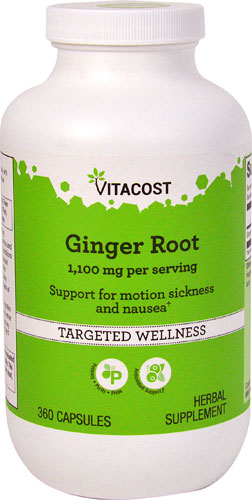It’s wintertime: are you doing everything you can to stay well? Besides making nutritious food choices, getting enough sleep, exercising regularly and keeping stress in check, consider turning to Mother Nature for a little help with your immune health.
In Eastern natural health practices, various parts of plants (herbs, flowers, roots, etc.) are consumed or applied topically to help support the body’s systems. Herbs are known for their energetic properties and classified as “hot,” “warming,” “cooling,” or “cold.” You want to boost your intake of hot and warming herbs during the winter months, and increase your intake of cooling and cold herbs in the summer.
Herbs can strengthen what’s known in Chinese health practices as Wei Qi. This is your defensive Qi, or vital force. Wei Qi can be thought of as a shield that surrounds your body, keeping you protected from the onslaught of offenders that might invade your body and upset your health.
Let’s look at five warming herbs – some of which you probably have on hand in your kitchen – that can be used to support immunity through the winter months.*
Oregano: Used since ancient times as a spice and to give Italian dishes extra flavor, this herb provides several essential vitamins and minerals and also has antioxidant properties.* It can be enjoyed fresh or dried, and it can be brewed into a healthful tea for times when you feel a sore throat coming on. Oregano can also be used as an essential oil, but beware: the oil must be diluted in another oil, such as olive oil, before use. If you take oregano oil in the form of a capsule or tablet, be sure to take it with food.
Cardamon
Often used in Indian and Asian cooking for its peppery, almost citrusy flavor, cardamom contains essential minerals and antioxidant compounds.* To use cardamom powder in a throat gargle, mix a half-teapsoon in one cup of warm water. You can also add cardamom to food, such as curry dishes, for warming effects during the winter months.
Cinnamon
This herb has been used for ages to enhance flavor and promote health. In Chinese health practices, it’s frequently used to build strong Qi. In Western medicine, cinnamon’s active ingredient, cinnamaldehyde, has been found to have antioxidant properties.* Cinnamon can also help to support healthy blood sugar levels already within normal range.* Use this special spice in your morning oatmeal, add it to your smoothies or stir a pinch into your favorite tea.
Garlic
In Chinese medicine, garlic is classified energetically as warming to hot. It adds potent flavor to food in cuisines around the world. Nursing mothers may want to avoid garlic because a newborn’s digestive system might not tolerate it well, but garlic can be used at almost any other time. (It’s safe for children and pregnant women.) You can eat it baked, sautéed, steamed, or sprinkled as a dried herb on foods. You can also take garlic in capsule form. Kyolic makes a deodorized garlic supplement that can be taken daily to support immune health.*
Ginger
The root of the ginger plant is used in many traditional Chinese medicinal formulas for its “warming” properties and ability to strengthen a person’s Wei Qi. Western medicine has found that ginger root supports a healthy inflammatory response and acts as a free radical scavenger.* Drink a cup of ginger tea every day; add ginger to your favorite dishes; or try it in my immune-health tea.
Dr. Steelsmith’s Immune-Support Tea
Boil 6 cups of water, and add 3 tablespoons of peeled, sliced ginger root and 1 tablespoon of ground cinnamon or cinnamon root. Simmer the mixture on low heat for 10 minutes; remove tea from heat, then add 3 cloves of thinly sliced garlic and 1 tablespoon of honey. Steep this tea mixture with a lid on for 10 minutes, then strain. Drink 1 cup every day, or 2 to 3 cups daily if you’re feeling under the weather.
*These statements have not been evaluated by the FDA. These products are not intended to diagnose, treat, cure or prevent any disease.




